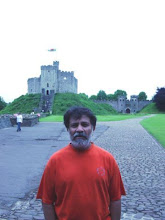In the never ending night, he will probably need to pacify a querulous relative, attend a cardiac arrest, deal with a recalcitrant alcoholic and chart the right dose of a painkiller. Like every other intern, he will probably stay late and wonder how he didn't even get to the loo or grab a bite. These very nights, used to end in a blink, when he was shaking a leg as the beau of her beloved.Now they have thrown every little biological rhythm of his, out of gear.
Agile processing and critical reasoning, these skills will take time to develop. Internship is all about finding your place again - at the bottom of a hierarchy. It is about being receptive to a tsunami of information, but instead of being stymied by it, embracing what you need to better yourself. It involves a lot of mindful observation about what goes on around you and how you can adapt it to your temperament and needs.
As interns begin this challenging rite of passage, it is an apt time to ask what a society, which invests so heavily in its doctors, is entitled to expect from interns, who are the effective gatekeepers in a public hospital system.
Having a diligent and caring intern is what patients often nominate as having made the difference to their hospital stay. This is because interns still spend the most face time with patients compared with more senior doctors, who have to contend with clinical and administrative duties. Interns are the first contact for the majority of concerns, and while they may not consider themselves much more than a highly qualified scribe, they underestimate their own worth to a patient.
How does a sick, frail or dying pin all their hopes on a bunch of novices, caught giggling on their cell phones, a minute ago? How would an alert and sceptical relative of the dying, put his faith in that intern? Will the patient allow his day to day well being in the hands of a fidgety, overzealous bloke who has a slew of medications for every complaint?
A patient will trust a doctor who will listen more and assume less, all the while being sensitive, compassionate and responsive.Where have all of them gone? Are these fresh from the oven, but half baked interns trained TO FEEL? Is a novice geared to lessen the anxiety, create security and offer peace, when all he exudes are immense restlessness and the need TO DO rather than observe, analyse and still bide time not to act or wait? Will he not get rattled by the incessant barrage of questions from the never ending posse of relatives? Shall he exude calmness and offer confidence when he himself is grappling exactly with the lack of both these? Who ever taught him to return only the calls that make sense, provide holistic view about the patient's present and future? Is he taught to switch sides and feel all that the poor soul in a tizzy, at the mercy of a non- existing system and half baked knowledge, going through? Would he be ready to learn to ask the questions that are common to every patient and his relative and the neighbour's dog?
. Ask any doctor about the motivation to be a healer. On top of the list, is the desire to help others. Ask any intern what the most satisfying part of the job is and you will be told it is the doctor-patient interaction.Does he remain polite and bereft of all the fluff that usually occupies the head of fresh or experienced doctors? Learn to feel.Only then shall he perceive the helplessness and the incessant questions of the patient.
I am almost certain." The doctor" has become jaded and insensitive. In part this is due to the chronic engagement with the sick. The sob stories of the children of the lesser God,have lost their meaning or worse, their impact. It is a wishful thinking and a proven, unrealistic approach that by simply submitting interns to long hours and more fact-based teaching, we will turn them into better doctors.
Bend a little bit more or else we shall break, break the intangible yet very holy that governs the doctor- patient relationship. Break all that is left of the trust and faith that the patients, unfortunately are forced to put in us and the dismal healthcare we offer.
A more flexible curriculum shall truly nurture our interns to become better communicators about a whole range of subjects that cause anguish to patients. Some common things that our patients expect us to do better at include breaking bad news, dealing with a health setback, discussing the end of life and registering their priorities without inserting our own.And on top of all these is the readiness to LISTEN and not butt in. Do not offer solutions to the problems that are not possible to cure. More often than not patients need to BE HEARD.
In their lifetime the doctors are likely to see some extraordinary discoveries. Somewhere today, there may be an overworked intern who may one day find the cure for cancer or diabetes or multiple sclerosis.
For now, they would do well to remember that when it comes to being a good doctor, caring can be just as important as curing.

No comments:
Post a Comment